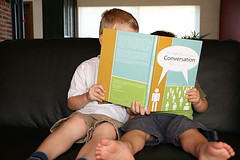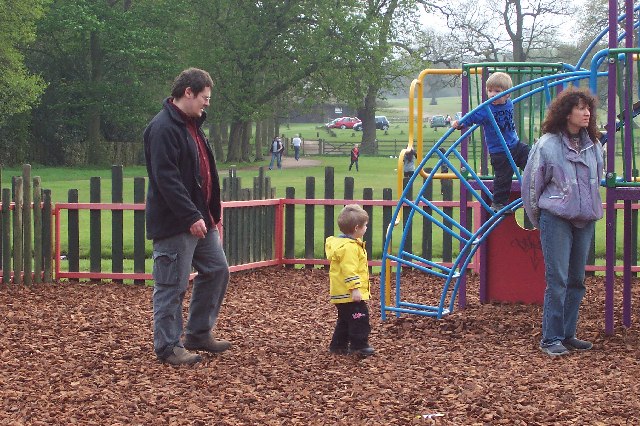When there is an addict or alcoholic in the home all sense of peace is lost. Drugs, alcohol, and the emotional turmoil that comes with substance abuse take center stage. Family members either act as if nothing is happening or fly into irrational rages while desperately searching for something to control. By the time the drug abuser is discovered, in some ways it is already too late. Without intervention the problem will probably get worse. It is rare that an addict or alcoholic wakes up one day and suddenly decides to mend his ways. He may make promises along these lines but that is usually to avoid potential consequences, not because of a sudden change in heart. Loved ones are left confused and scared, having little awareness of where to turn. Parents of addicts need tools after their son or daughter enters recovery. Abstinence does not solve all the problems created by drug abuse. With the right help parents are able to become a part of the solution while healing emotionally.
clint stonebraker
How To Cope With Emotional Turmoil With An Addict Or Alcoholic
Youth at Risk In Today’s World
It is not uncommon to hear stories about “at risk youth.” The term is often used but at times misunderstood. There are so many circumstances that put young people in potentially dangerous situations that in some ways young people are “at risk” all the time. Normally, parents compare what teenagers experience today through the lens of their own life but today’s world is a very different place. Every generation has its version of “these young people just don’t get it” but in reality things have changed significantly in the past three decades.
Guidance For Parents In Substance Abuse Recovery
The second step in Enthusiastic Sobriety is: We found it necessary to stick with winners in order to grow. For young people in recovery, the reason for this statement to be an actual step is obvious. Young addicts and alcoholics are very peer driven. If they aren’t around other sober young people they are likely to use again. What isn’t as clear is the degree to which adults are affected by the opinions of other grown-ups. Some of the worst advice parents get on how to deal with a drug abusing child comes from other well intentioned parents.
Good Intention Is Not Necessarily Good Advice
Most people are very willing to give advice to parents who are struggling with a troubled child. This is especially true if the kid in question has a drug or alcohol problem. It seems that everyone has either experienced substance abuse issues or at least knows someone who has. These experiences can be helpful but are often a hindrance. When a family is in the midst of a crisis centered on drug abuse what they need most is sound guidance. Where counsel comes from is important. Emotionally driven anecdotal tips do little good. For a plan of action a parent should consult an expert. The combination of professional counsel and empathetic support from parents who have been in a similar situation lay the foundation for a solid program of recovery.
You Are Not Alone
Having a child struggling with drug and alcohol problems does not make a parent a failure. Asking for help can be extremely difficult. The fear of judgment or the idea that somehow you have caused the problem leads to despair and isolation. There are people who understand exactly how it feels to be in this situation. Those who have found recovery have a responsibility to share what they have done to get better. Parents in need of help don’t know where to turn. There is an endless supply of irrational recommendations available. Most people in search of help have been misguided at some point. Not everyone can be expected to understand what it is like to deal with a substance abuse issue. “Sticking with winners” is a powerful tool parents can use to find help and to not feel so crazy.
Do You Struggle To Accept Different Opinions? How To Avoid Conflict
Do you struggle with accepting different opinions? Conflicts often begin as a result of trying to convince someone else to see a situation the same way you do. You have every right to your opinion and the free expression of it. It is important to remember, however, so do those with whom you don’t agree.
As people, we thrive on validation and connection. Having our contemporaries support and understand our viewpoints feels good and keeps our hearts open. We experience a sense of unity and advocacy. It only becomes problematic when one party attempts to suppress the opinions of another.
Contrasting perspectives enhance life. Although it may be rare for someone to change their mind, being exposed to differing beliefs can be very healthy as we learn to become explorers in this complex and multi-faceted world we live in. Through listening to someone else’s ideas we may choose to create positive change in our life, or it may strengthen our current decisions and personal power.
“Don’t rely on someone else for your happiness and self worth. Only you can be responsible for that. If you can’t love and respect yourself – no one else will be able to make that happen. Accept who you are – completely; the good and the bad – and make changes as YOU see fit – not because you think someone else wants you to be different.” ~ Stacey Charter
To be able to accept another person’s opinion is a symptom of healthy self-acceptance. It is always good to know who you are, what you believe, and why you have the perspectives you do. Enjoy sharing your insights, and even more importantly, learn to enjoy listening to the insights of others. All of this enriches life.
Create Strong Relationships: How To Define The Life You Desire
In order to create strong relationships, it is vital to clearly define what kind of life you desire. You can decide to be a lonely, friendless and curmudgeonly old hermit who complains all of the time. If this isn’t the kind of life you want it is possible to change course at any time.
Chances are you want to lead a joyful, exciting, and fun life. You probably long to have relationships with people who can support you when needed and with whom you can share any triumphs you experience. A full life is at least partially defined by the relationships you have. One way to define success and happiness is by being able to fulfill and share your dreams and desires.
An important part of this definition is learning to create enough flexibility to change direction when it will benefit you and the people with whom you are involved. It is important to have principles and convictions to live by. It is equally important to have the ability to differentiate between contrasting opinions and fundamental disagreements of principle.

When you compromise principles in order to have a relationship, a tremendous amount of energy can be wasted trying to convince the other person your opinions are right. When you form relationships with people you are emotionally compatible with, you can recognize differences in opinion without becoming angry. Your opinions, principles, and definitions of happiness have been formed through your life experiences. When these definitions are solid, there is less of a need to defend them. As a result of not being defensive, you will be much more open to the opinions of others. With this openness, you can attract people into your life with whom you can build strong relationships, even if you don’t agree on everything.You are also able to avoid potentially harmful relationships. You stay in touch with the only life you need to concern yourself with: your own.
Exercise
Make a wish list of the kind of life you want. How do you envision your relationships in five years? What steps could you take today to begin living that life?
Does Intimacy Scare You? Three Simple Tools To End Isolation
The biggest challenge facing people in establishing intimacy is having the willingness to let go of what no longer serves them: fear being the most powerful. If someone actually realizes no one wants to be around him, the solution is to take a look within and begin the process of letting go of the perceptions, ideas, and fears creating the isolation. Isolation is scary, and nothing breaks the human spirit faster. There is a reason prisons use isolation as a means of punishing inmates who break the prison rules. When a person who already feels isolated is left alone with his thoughts, regrets, and fears, he will reach a state of hopelessness.
Anyone is capable of reaching a state of openness and vulnerability.When a person has a desire to connect with others, he can then find the courage to begin taking a look at the blocks standing in his way. He will seek out people who can help him change his perceptions and preconceived judgments. He can discover what is truly important and begin to build a life based on the solid foundation of these principles. Intimacy will begin to become more of a natural state of being rather than something avoided. Finally, he can realize that through every intimate relationship formed, he becomes more and more capable of achieving the life of his dreams.
- People remain stuck in a pattern of unhappiness when they are slaves to their fears.
- A key to responding positively to fear is establishing clear communication.
- A major challenge in establishing intimacy is learning to let go of fearful thinking.
A simple exercise to begin the process of letting go of fears that negatively affect relationships includes:
- List five fears you know have affected your relationships
- List five fearful behaviors you have changed and the effect this has had on your relationships. If you can’t think of any, list some fearful behaviors you want to change.
- Commit to letting go of at least one irrational fear you have held on to. Begin the process of letting go of this fear immediately. Consult with someone to devise a plan of action.

These simple tools can make a tremendous difference in anyone’s ability to establish closer relationships. It is possible to break the cycle of loneliness and isolation. These tools can be a powerful beginning.
Are Your Fears Running Your Life? How To Respond Instead Of React
People learn to either respond to or react to fears. When someone reacts to his fears, he generally expects something to go dreadfully wrong, and as a result may lash out at the people around him. The most common reaction to fear is anger. Because this reaction is typical, it is often accepted as being o.k. Anger isn’t inherently bad, but it is important to see it for what it is. Anger is a reaction to fear or hurt.
If someone only focuses on anger, rather than dealing with what is causing an angry reaction, a negative pattern is left unresolved. Only looking at symptoms doesn’t create real and lasting change.
In a routine physical, one of the first things the doctor does is the reflex test. The doctor takes the rubber mallet and gently raps the knee. The leg instinctively kicks out as a reaction to this strike. If the doctor is standing in front he may take a direct kick as a result of this reaction. How the reflexes respond gives the doctor some insight into a person’s overall condition. If something is wrong, the doctor will take the opportunity to see if there is a more serious problem.
When people hold onto a high level of fear, most of their perceptions are illogical; and they find it difficult to find people they can trust. In fact, they find people to be generally untrustworthy; therefore, they continue to attract people into their lives that reinforce this belief. They are on the whole unhappy and feel lonely. In order to be removed from this cycle of reaction:
- a person must recognize that living in a constant state of fearful neurosis perpetuates loneliness
- it is vital to realize anger hinders the ability to connect with anything positive. This includes people, places, and joyful experiences
- there must be a desire to create a more positive outlook

It is possible to develop positive techniques to deal with anger. It begins with a sincere desire to change. When someone decides to make this transition the first steps toward a solution have already been made.
Photo Credit:Svadilfari via: Flickr
Do Your Children Communicate Clearly? How To Help Positive Communication
What is one of the most important skills human beings develop? It is the ability to communicate. People first learn to communicate at home. When a parent’s priorities are centered on building a loving relationship with his child, he works to set up an environment conducive to everyone feeling safe to express themselves openly and honestly.
Often the adults in a household have the freedom to scream, holler, rant, and rave; but when their child so much as raises her voice, she is punished.
Consider the mixed message sent to the child. An adult has the right to express his or her emotions in any way seen fit; but a child is worth less than an adult, therefore, she must learn to behave herself and be quiet.
The parent rationalizes this with the idea he is teaching his child respect or discipline. The parent is probably living out of his own negative family scripting.
He is teaching his child a very dangerous coping mechanism, how to misplace her emotions. The child is upset or angry, but is told she cannot express her feelings. No matter what the child was upset about initially, her anger will be directed at her parents. This misplaced anger will be manifested in some way, shape, or form. No human being is able to bottle up feelings and maintain any semblance of mental or emotional well-being. These emotions come out at some point.
• A key to ending negative scripting patterns within a family is to create a safe and loving environment.
• When the focus of parenting is on the relationship it is easier to avoid unrealistic expectations.
- A child’s feelings are as real and powerful as an adult’s; they should not be discounted.

Three Tips To Encourage Positive Communication With Children
- Remember children’s feelings are as powerful as adults but kids lack the same coping skills
- Children who are free to express emotions at home are less likely to act out away from home, provide them with a safe place to vent their feelings
- Support children, don’t try to change the way they feel
Emotions aren’t right or wrong. When children have the freedom to talk about their feelings they will, most likely, talk. Adults should remain aware to not judge a child’s emotions, the child will process the feelings if given the chance.
Photo Credit: Kris Hoet via: Flickr
What Other Parents And Parenting Experts Can’t Tell You About Your Child
An easy trap for parents to fall into is the unrealistic expectation of perfection. Parents are conditioned to believe they should be equipped to handle any problem their children might have. Parents become convinced that there shouldn’t be a question they are unable to answer. Many read the testimonials of other parents, or of parenting experts, and immediately feel inadequate if their children aren’t living up to what are considered normal developmental standards.
In reality, parenting is subjective. Despite numerous sources from which ways of thinking or philosophies are gleaned, how an individual chooses to parent is primarily dictated by the personalities of the children being parented.
Rather than trying to fit perfectly within a particular parenting philosophy,one could make an effort to learn from as many resources as possible. That doesn’t mean change on a whim; it means to be in a position to respond to children’s ever-changing needs.
Paying too much attention to “normal” developmental stages puts an unnecessary amount of pressure on the parent and the child. It is important to keep in mind that children want to be close to their parents. They have a sincere desire to please their care-givers.
Sometimes this desire to please becomes a struggle for independence because children want to prove they are able to take care of themselves. If a parent is able to keep this in mind there will be less of a need to control the child’s behavior to fit a chosen parenting philosophy.

Far too often what gets lost in the minutiae of parenting is the relationship between the parent and the child. There are many ways to gauge whether or not this is happening. Some questions include:
• Does a lot of energy get spent trying to make sure the child fits the “normal” developmental standards?
• Is there an attempt to strictly adhere to any one parenting philosophy?
• Are expectations based on the personality of the child or on what others say should be expected of the child?
The parent-child relationship can feel very complicated at times. One way to facilitate a harmonious and productive relationship is for the parent to deal with his own emotions first. When able to do this, the urge to control the behavior of someone else is greatly reduced. This is easier said than done in a lot of cases, but it is certainly an ideal worth shooting for.
Photo: © Copyright Adrian Bailey and
licensed for reuse under this Creative Commons Licence.
The Connected Family: Three Simple Tips To Create Unity At Home
Do you wish your family was closer? Is there a certain feeling you want to create at home? Follow three simple steps to get closer to creating the connections you want.
Most people grow up with a vision of what they want their family to look or feel like. This can be especially true for those who come from dysfunctional backgrounds. In order for someone to create relationships grounded in a healthy ideal, it is vital to have a definition based on a personal definition of happiness and success .
Ideally, a person’s closest relatives provide his safest relationships. Unfortunately this is not the case for many. Due to faulty scripting, behaviors influenced by culture or relatives, many people accept negative or toxic relationship patterns because they are familiar. This lack of connection or unity at home becomes expected. It is critical to not assume that a relationship is healthy simply due to being related. Sometimes, people take for granted those to whom they are related to will accept any behavior.
“Call it a clan, call it a network, call it a tribe, call it a family. Whatever you call it, whoever you are, you need one.” ~ Jane Howard

Three Tips To Improve Family Relationships
- Write down a brief description of the ideal family. Focus on the emotional characteristics.
- Write down a couple of positive characteristics developed from your upbringing (even if this consists of what not to do).
- Write a brief description of how you want to be in the context of your family relationships, what kind of partner, parent, child, sibling, etc. Choose the relationship roles that apply to you.
No one has to accept the status quo.If you have found yourself dissatisfied with the condition of your relationships at home their are steps you can take. For anyone to believe they are unable to initiate a significant change in the way relationships are formed is tremendous self-deception. It is possible to create the family relationships you want. This process begins by focusing on who you can actually change. The one person you can change is you.
